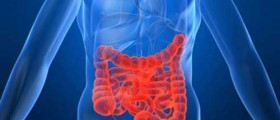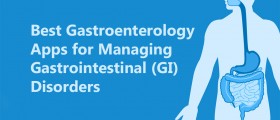
Ulcerative colitis is an inflammatory bowel disease, specifically in the large intestine. It includes ulcers and open sores on the intestine. There is no known cause for this type of colitis, but it is presumed to be hereditary. It may also be caused by environmental causes. Common symptoms of colitis are diarrhea mixed with blood and mucus, weight loss, rectal bleeding, abdominal pain and cramps. After a series of blood tests are done, urine analysis, stool culture, tests of liver function, a doctor may diagnose ulcerative colitis. However, the best way to be certain is endoscopy or biopsy. Although diet is not considered to be a cause for ulcerative colitis, it is believed that proper diet may reduce discomfort of the disease.
Creating an Ulcerative Colitis Diet Plan
Every person knows what foods cause their symptoms, so a diet plan can help relieve the pain and discomfort as a result of colitis. Symptoms of gastrointestinal diseases are usually diarrhea and bleeding, hence loss of necessary nutrients. People with these kinds of diseases should do their best to establish a balance of nutrients in their body which is crucial for their vital organs and their overall health. Diet designed for ulcerative colitis should be based on high protein, complex carbohydrates, wholegrain food, and good fats. This diet may also include meat, fish and dairy products, bread and cereals, fruits and vegetables. Vegetarians should increase dairy products and plant proteins found in soy.
Foods that should be avoided are those foods that aggravate the symptoms of ulcerative colitis and cause inflammation. Not all foods cause the same symptoms among people. For some, coffee and alcohol aggrevate diarrhea and cramps, for others, raw vegetables and foods rich with fibers cause their inflammation. However, foods that trigger gastrointestinal symptoms usually include alcohol, caffeine, carbohydrates, dairy products, dried beans, peas, fruits and berries, pepper, meats, raw vegetables, seeds, processed sugar, foods containing sulfur, sorbitol, spices and popcorn. People sometimes have difficulty remembering which foods aggrevate their ulcerative colitis. One good idea is to keep a food diary, a notebook in which people would write all the kinds of food they have eaten during a day. This way a person will know for sure what causes the effects of colitis, and which foods others have problems with do not bother his or her metabolism. Since it is common that people with ulcerative colitis lose weight, they should check their vitamin levels before starting any form of diet. Many gastrointestinal diseases prevent the body to absorb nutrients from the food, so it is important to determine whether the body craves for something in particular and to avoid weakness or anemia. So besides proper diet, some people should incorporate nutritional supplements in their diet. If they do not eat dairy products, they must include calcium through other foods, or through through calcium supplements.

















Your thoughts on this
Loading...